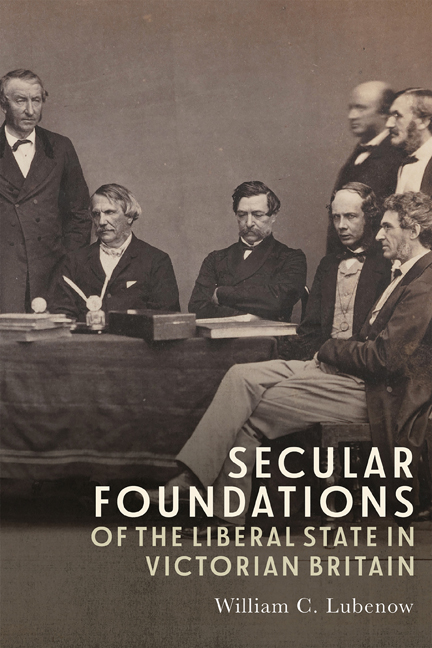Book contents
- Frontmatter
- Dedication
- Contents
- Preface
- Introduction: Methods, Materials, and Theses
- 1 From the Fiscal–Military–Confessional State to the Secular–Liberal State
- 2 From the Northcote–Trevelyan Report to the Order in Council of 1870
- 3 The Haldane Committee and the Creation of the Cabinet Office: Hankey to Hunt
- 4 “Fit and Proper Persons”: The Secular Clerisy
- 5 The Secular Clerisy’s Outillage Mental and Mandarin Solidarity
- 6 Regions of Doubt and Belief – Varieties of Secular Experience: Essays and Reviews, Ecce Homo, and the Gifford Lectures
- Conclusion and Epilogue
- Select Bibliography
- Index
3 - The Haldane Committee and the Creation of the Cabinet Office: Hankey to Hunt
Published online by Cambridge University Press: 09 May 2024
- Frontmatter
- Dedication
- Contents
- Preface
- Introduction: Methods, Materials, and Theses
- 1 From the Fiscal–Military–Confessional State to the Secular–Liberal State
- 2 From the Northcote–Trevelyan Report to the Order in Council of 1870
- 3 The Haldane Committee and the Creation of the Cabinet Office: Hankey to Hunt
- 4 “Fit and Proper Persons”: The Secular Clerisy
- 5 The Secular Clerisy’s Outillage Mental and Mandarin Solidarity
- 6 Regions of Doubt and Belief – Varieties of Secular Experience: Essays and Reviews, Ecce Homo, and the Gifford Lectures
- Conclusion and Epilogue
- Select Bibliography
- Index
Summary
The triumph of mind over matter, when it is to be witnessed, always brings about greater fullness of result and, in the end, greater efficiency. It is this that I hope for in the new Civil Service. The higher its ideals the more penetrating will be its influence. To me it is a growing power in the administration of public affairs.
R.B. HaldaneTHE themes of the Northcote–Trevelyan Report – merit measured by competitive examinations instead of patronage – came to be expressed in the report of the Haldane Committee and the formation of the Cabinet Office. These themes formed aspects of the skeins of warp and woof of the secular formation of the liberal state in the twentieth century. Keynes, in his Economic Consequences of the Peace, made a self-conscious reference to the beginning of St. John's Gospel when he observed how sometimes words do not become flesh. Indeed, the processes of central government were sometimes awkward and obscure in the nineteenth century. Some Prime Ministers were more systematic than others. Mr. Gladstone, when he was in Downing Street, mustered his secretaries into a kind of secretariat to manage his business. Institutional looseness often relied on the personality and deftness of the likes of Peel, Palmerston, Gladstone, and Salisbury to hold together what one scholar has called the “ghost” of the British constitution.
Such an unsystematic system might be tolerable in normal times. In times of need, however, it was not. The turmoil of party instability in the 1850s, the Crimean War, the South African War, and the Great European War revealed the weakness of such arrangements. However, it was forever present. In 1882, for example, Chamberlain and Harcourt went to Lord Hartington because they were puzzled about a Cabinet meeting after which John Bright resigned from the Cabinet. Lord Hartington's secretary wrote to Edward Hamilton, then one of Mr. Gladstone's secretaries and later a Permanent Secretary of the Treasury, to ask what happened. He wrote: “My chief has told me to ask you what the devil was decided, for he was damned if he knows. Will you ask Mr. G. in more conventional and less pungent terms?”
- Type
- Chapter
- Information
- Secular Foundations of the Liberal State in Victorian Britain , pp. 106 - 131Publisher: Boydell & BrewerPrint publication year: 2024



